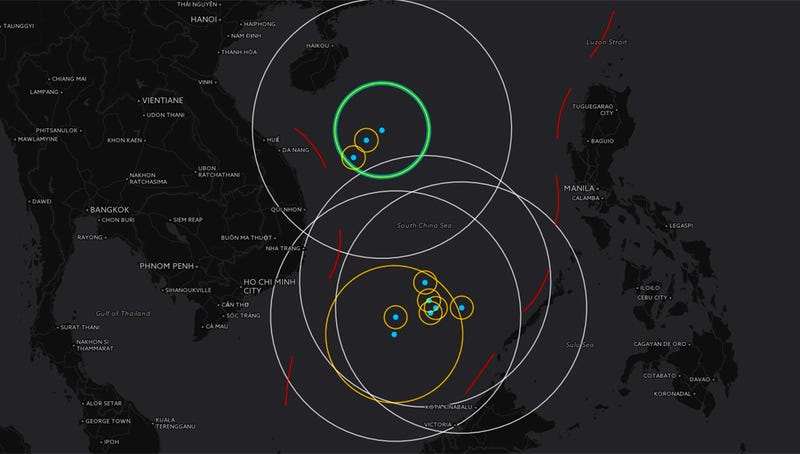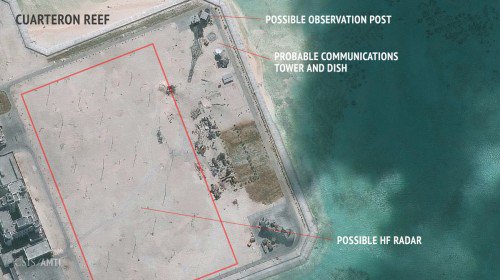IDF: On Monday, Joe Biden will land at Ben Gurion Airport, for his last visit as Vice President of the United States. Ostensibly, this is one of the more boring visits: current Democratic administration is in his last year, and Biden himself had decided not to run for the Democratic presidential nomination, as many vice presidents have done before him.
Still, the visit arouses huge interest, especially in the Israeli defense establishment. The reason: the discussions with the United States regarding a new framework agreement for defense aid entered the final straight, and Biden might bring about some news on the matter, or at least a hint. Anyway, shortly after Biden’s visit, the defense minister will visit Washington, after which Prime Minister Benjamin Netanyahu will also visit the United States. Therefore, the aid agreement is expected to be signed by the end of March, at the latest. Israel is counting on the American administration to be generous towards Israel’s defense needs at this time, in order to win the support of the Jewish vote (and mostly the Jewish donors) prior to the presidential elections.
Aid or “Compensation”?
To understand how the coming month will be crucial in terms of the Israeli defense ministry, we need to understand the context: the US elections will be held in November 2016, whereas the previous defense aid agreement between Israel and the United States will expire in 2017. The 10-years-long agreement set the extent of the defense aid back in 2007. According to the soon to be expired agreement, Israel received each year $ 3.1 billion. This is a huge sum, which constitutes more than 20 percent of Israel’s defense budget. Under the terms of the aid, the Ministry of Defense has received permission to convert half a billion dollars each year into NIS, to use the money for local acquisitions. The remainder is used as the primary budget source, to finance IDF equipment of central combat platforms such as fighter jets and helicopters.
Beyond the generous annual aid, Israel receives additional aid from the United States for special projects. For example, the US has funded the equipping of seven of the nine Iron Dome batteries. In addition, the US DoD had collaborated with the Israeli defense establishments in the development and funding of other major missile defense projects – “Arrow 3” and “David’s Sling”.
It was recently reported that the Americans will also deliver funds for projects that will assist the fight against underground tunnels built by Hamas in the Gaza Strip. Furthermore, the IDF and the US military has an agreement in which Israel could use American military equipment, kept in storages in Israel, in emergencies. To top that, the US Army also operates an innovative and classified radar system in the Har-keren mountaintop in the Negev region. Israelis are not allowed to see it firsthand (the closed US area on Israeli soil generates considerable resentment in the defense establishments).
Harming the Israeli national honor or not, the new aid agreement on the agenda is also considered as compensation for the nuclear deal with Iran in summer 2015. The truth is that the compensation is not for the nuclear deal, but for the massive arms sales of American companies in the Persian Gulf.
Not many are aware, but the entire region is in an intense arms race, as Iran plans to spend no less than $ 20 billion of its funds, which were frozen during the economic sanctions, in order to finance the procurement of advanced weapons systems, primarily from Russia. Iran’s neighboring countries fear its massive procurement and its transformation to a nuclear power, sooner or later (no leader in the Persian Gulf believes that the agreement will prevent Iran from attaining a nuclear bomb). For this reason, they also acquire weapons, mainly from France and the United States (including many squadrons of modern fighter aircraft, made by the two countries).
This massive equipping is a great celebration for the US defense companies, but these weapons may one day be directed against Israel. Because the United States is committed to maintaining Israel’s qualitative edge (under a law passed years ago in Congress) – Israel is expected to receive increased aid, to allegedly ensure this advantage.
Aid Talks
Sources very involved in the defense and diplomatic relations between Israel and the United States, are confident that Israel had already missed an excellent opportunity to boost the “compensation”. It was near the time the agreement with Iran was signed. “Before signing the agreement, the American government was willing to give Israel almost everything it had wanted, to “silence” the criticism of the agreement. But because the Prime Minister has decided to fight Obama, the Americans have taught him a lesson and did not promise any compensation,” said a source close the subject.
Now, as mentioned, Israel hopes that the Democrats’ electoral considerations prevail over the US administration’s hostility towards the current Israeli government. But what Israel really wants and what would be the extent of the new aid? Talks over the subject between Israeli and American teams began last fall, as part of negotiations between the Israeli Defense Ministry and the Pentagon. During those conversations, Head of the IDF Planning Directorate, Maj. Gen. Amikam Norkin, presented the IDF’s needs to his US colleagues.
During the past few weeks, the aid negotiations was intensified and the reins were passed to PM Netanyahu’s hands, who deals with the issue closely.
The person who coordinates for the subject is the acting Head of the National Security Council, Ya’akov Nagel, who works regularly with the head of the US National Security Council, Dr. Susan Rice. Originally, Nagel started in the Administration for the Development of Weapons and Technological Infrastructure (MAFAT) in IMOD, and is currently a candidate for Heading MAFAT. Other major candidates mentioned, were Brig. Gen. (Res.) Dr. Danny Gold, who is considered as the father of “Iron Dome”; Maj. Gen.
(Res.) Ami Shafran; and Brig. Gen. (Ret.) Eytan Eshel and Brig. Gen. (Res.) Shmuel Yachin. The four of them served as Heads of the IDF’s R&D department.
Meanwhile, a new Head of the National Security Council was appointed this week, instead of Yossi Cohen, who has been appointed as Head of Mossad in early January: Brig. Gen. (Ret.) Avriel Bar-Yosef, originally a Navy officer, received the prestigious appointment.
Back to the US aid: the two main questions on the agenda are concerning the sum of the annual aid, in the decade between 2017 and 2027, and the quality of weapons that Israel will receive. Israel expects a significant boost in the annual aid, as part of “compensation” for the nuclear deal. Sums of even
4 and 5 billion dollars were heard. The second question, which depends on the actual sum of the defense aid, is what weapons systems Israel could purchase with that money.
Israel is already planning on at least two squadrons of the future F-35 fighter (the first aircraft of this model will land on Israeli soil this December), but in the Air Force they fantasize about no less than four squadrons by the end of the next decade. In addition, they desire an additional F-15 squadron, a modern array of transport helicopters and refueling aircraft, as well as an aircraft which is half helicopter and half fighter, the V-22.
In addition to aircraft, Israel-US talks involve advanced air-to-ground missiles and much-needed weapons, should it turn out that Iran has been fooling the world and continues to strive for a nuclear bomb. These weapons include, mainly, bunker-busting bombs, more advanced and heavier than the “Lite” version of bunker-busting bombs that the air force received five years ago.
Some of the systems discussed between Israel and the United States are highly classified. In many cases, it is expected that the Americans would agree to include such systems in the weapons arsenal supplied to Israel, only if they know that Israeli defense industries are already developing similar systems in parallel.
Not all interests of Israel and the US are overlapping, but from Israel’s perspective, the aid agreement shall determine Israel’s military power for many decades. Thus, this month will bring about crucial decisions, and all negotiation tricks will come into play, by both sides.
***
The curious relationship between Israel and Saudi Arabia and why
IRGC Forms Base Near Saudi Border
LONDON [MENL] — Iran has established a military base in Iraq near the border with Saudi Arabia.
An Iraqi military source said Iran’s Islamic Revolutionary Guard Corps was operating a base in Naqib, along the Saudi border. The unidentified source said IRGC was storing weapons as well as training Hizbullah.
“They want to create a foothold for IRGC’s Quds Force along the Saudi border,” the source said.
The source, identified as an Iraq Army colonel, told the Saudi-owned A-Sharq Al Awsat that IRGC was working with its Shi’ite proxy, Abbas Brigade. The brigade was said to have expelled the residents of Naqib, also off-limits to the Iraq Army.
“They also want to secure a safe land route to transport IRGC fighters and weapons into Syria and Lebanon,” the Iraqi officer said.
In 2015, Saudi Arabia came under mortar attack from alleged Iranian-sponsored militias in southern Iraq. As a result, Saudi Arabia has bolstered its military presence along the Iraqi border.
Other Iraqi sources confirmed that IRGC held large areas of southern Iraq, particularly around Basra. They said Teheran was controlling much of the south through such proxies as Hizbullah-Iraq and Shi’ite militias funded by the Quds Force.
“When armed militias seized control of the town [Naqib], Sunni and Shi’ite Arabs were expelled under the pretext that they want to protect Karbala from Islamic State of Iraq and Levant fighters,” the Iraqi colonel said.



